Life Saves the Planet Blog: Current – check to display Events and Announcements on home page, uncheck to hide from home page

Perspective: Heat Policy Briefing
In June, Bio4Climate Science Communications Intern Adrianna Drindak attended a congressional briefing in Washington, D.C., by The Environmental and Energy Study Institute (EESI) and the Federation of American Scientists about how federal policies can bolster resilience to extreme heat at the state and community level, centered on the Federation of American Scientists’ 2025 Heat Policy…
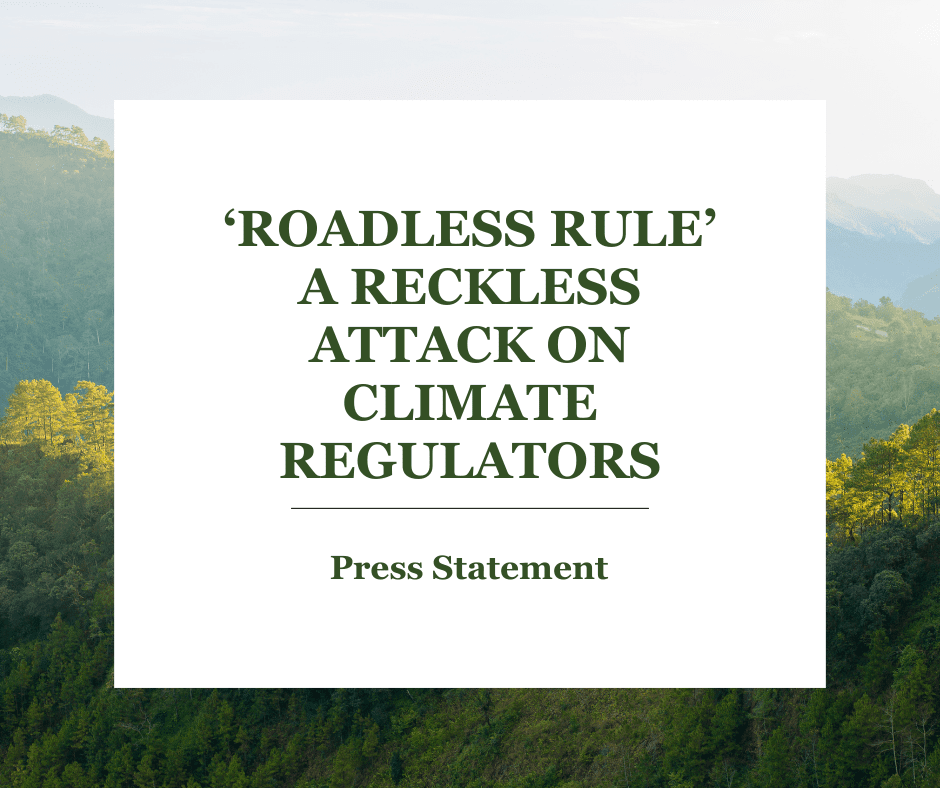
‘ROADLESS RULE’ A RECKLESS ATTACK ON CLIMATE REGULATORS
CAMBRIDGE, MASS. – Beck Mordini, Executive Director of Biodiversity for a Livable Climate issued the following statement on the White House’s decision to declare “open-season” on 58 million acres of native forests, paving the way for road and development construction. “Just as tens of millions of Americans are experiencing a lethal, record-breaking heat wave, the…
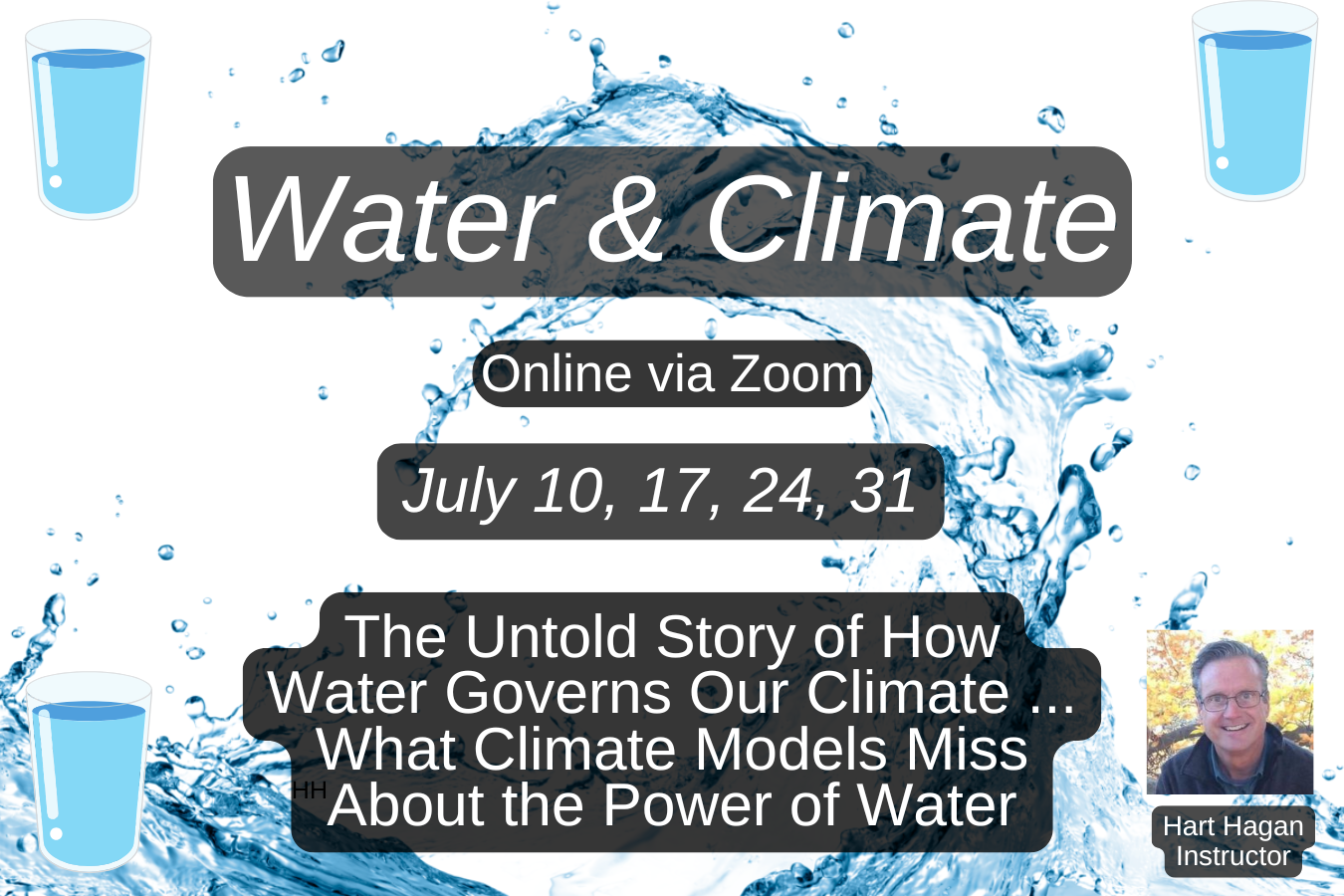
Water—The Missing Climate Solution—July 10-31
What if there’s a powerful solution we’ve been overlooking—one that could actually help cool the planet, starting right where you live? The untold story begins with water. Water is the most overlooked climate regulator. Through the cycling of water—plants, clouds, grasslands, wetlands and forests help stabilize Earth’s temperatures. When these systems are healthy, they cool…
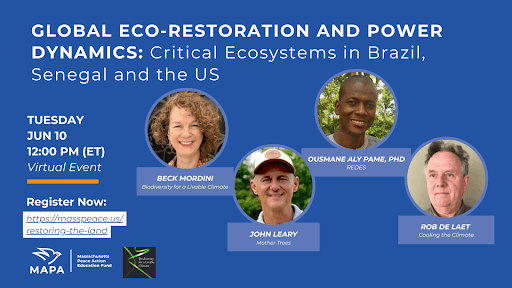
Global Eco-Restoration and Power Dynamics—Critical Ecosystems in Brazil, Senegal and the U.S. – JUNE 10 – 12:00 noon ET
Climate disruption is increasing and with it so is polarization, both within the US as well as among nation states. Now more than ever it is incumbent upon us to highlight successful efforts to create a more sustainable, just, and peaceful world. Important initiatives in regenerative agriculture, agroforestry, soil restoration, and related practices are making…
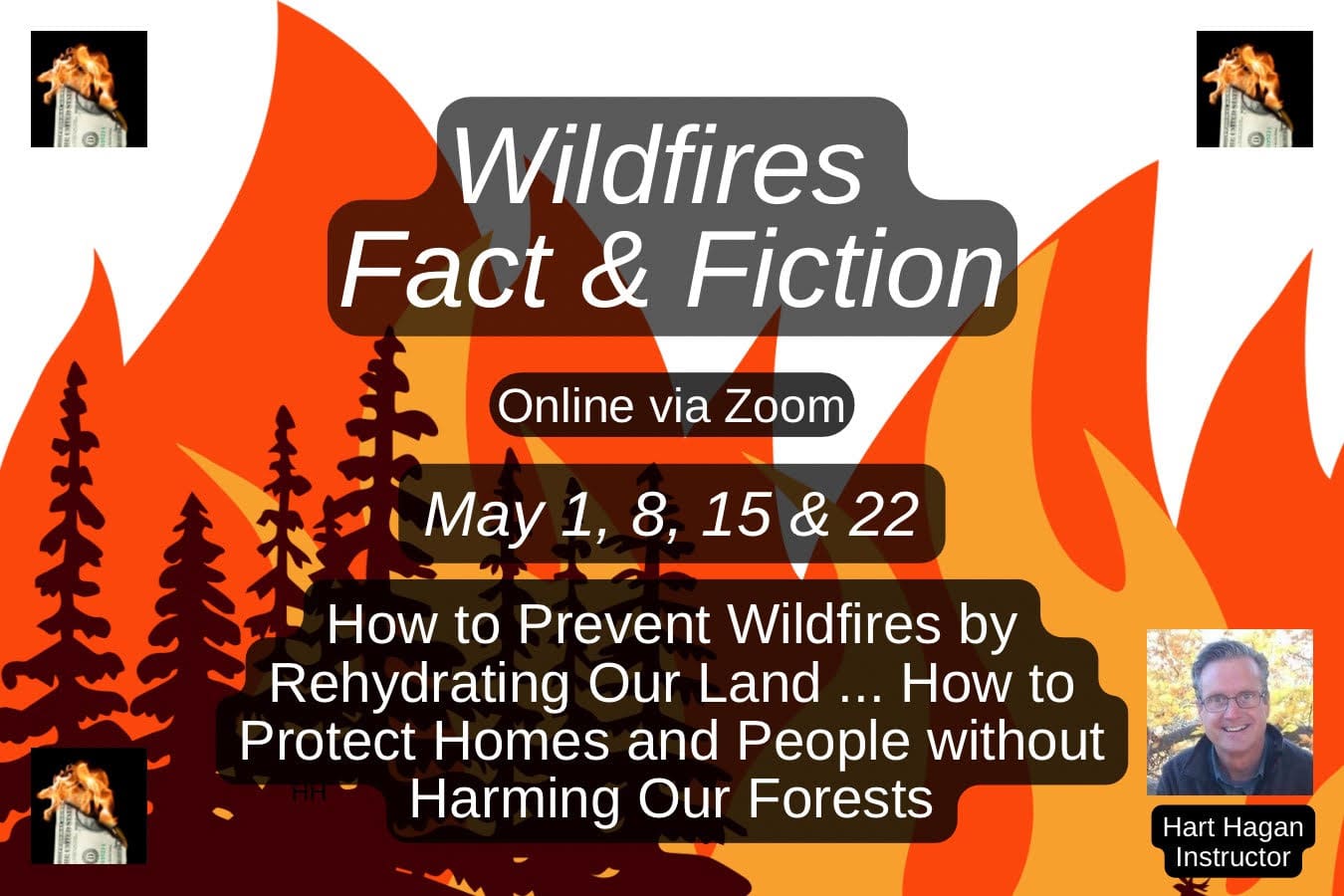
Wildfires Fact & Fiction — May 1, 8, 15 & 22
Wildfires are a very real threat, and we should be prepared. Unfortunately, we have been sold a range of false solutions (e.g., fuel reduction, forest thinning and prescribed burns), all at taxpayer expense. Wildfires Fact & Fiction will equip you with the most essential knowledge to protect homes and communities, while giving our forests what they…

The Critical Connection
This spring, Bio4Climate is sharing select excerpts from the late Jan Lambert’s book, Water, Land and Climate, The Critical Connection: How We Can Rehydrate Landscapes Locally To Renew Climates Globally. First published by The Valley Green Journal in 2015, Water, Land, and Climate introduces the transformative ideas of the New Water Paradigm—showing how retaining, rather…

A National Park in Your Own Backyard?
Bio4Climate partnered with a coalition of climate and native plant organizations to bring Doug Tallamy to Northern Virginia for an in-person talk and book signing.
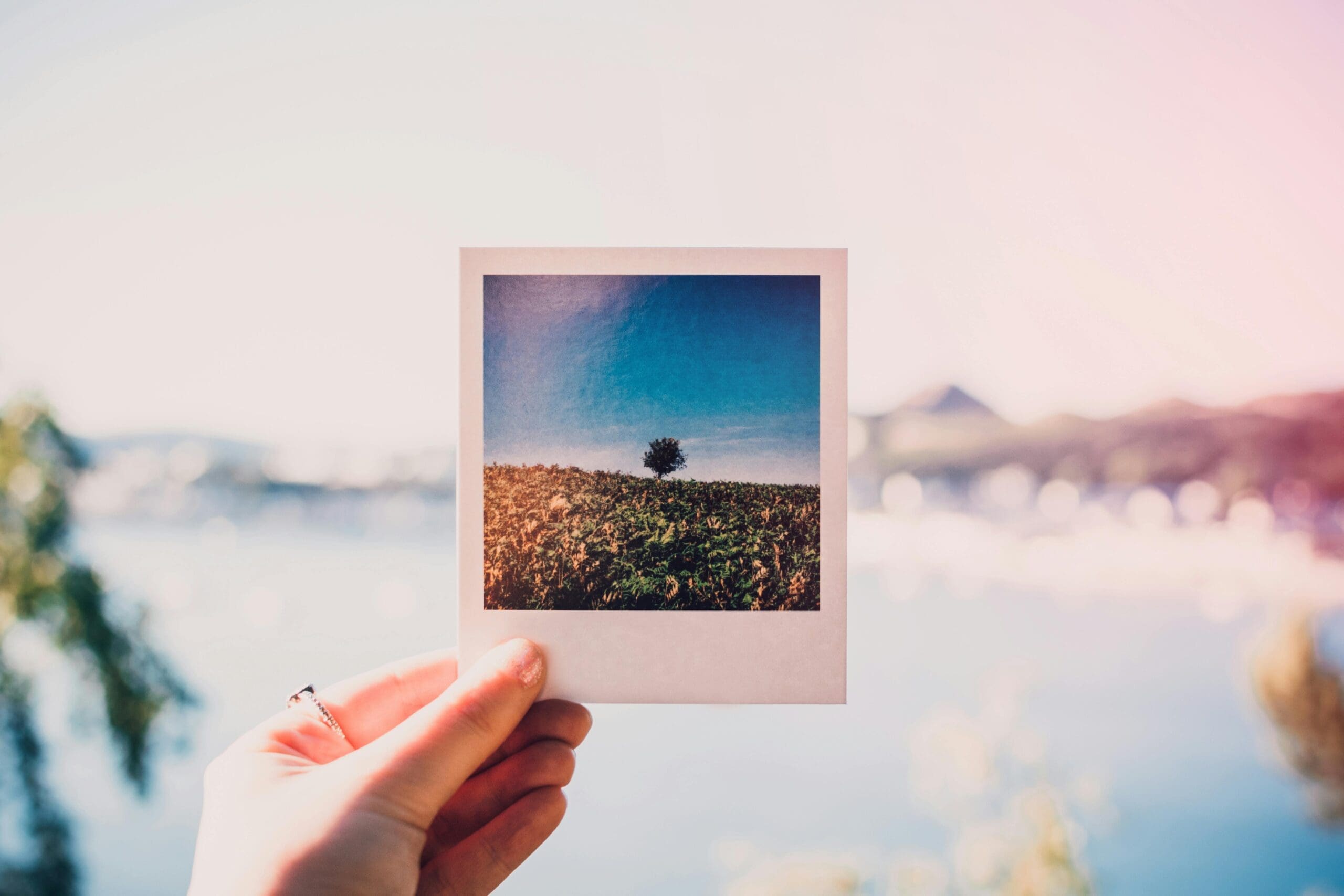
AN ECONOMICS OF LOVE
In early 2024, I offered an online 12-week course called “An Economics of Love” under the auspices of Biodiversity for a Livable Climate. Initially, I feared that people would encounter “An Economics of Love” as some sort of ‘hipster-flipster’ indulgence of flaky ideas, although those who enrolled showed no signs of any such dismissal, which…
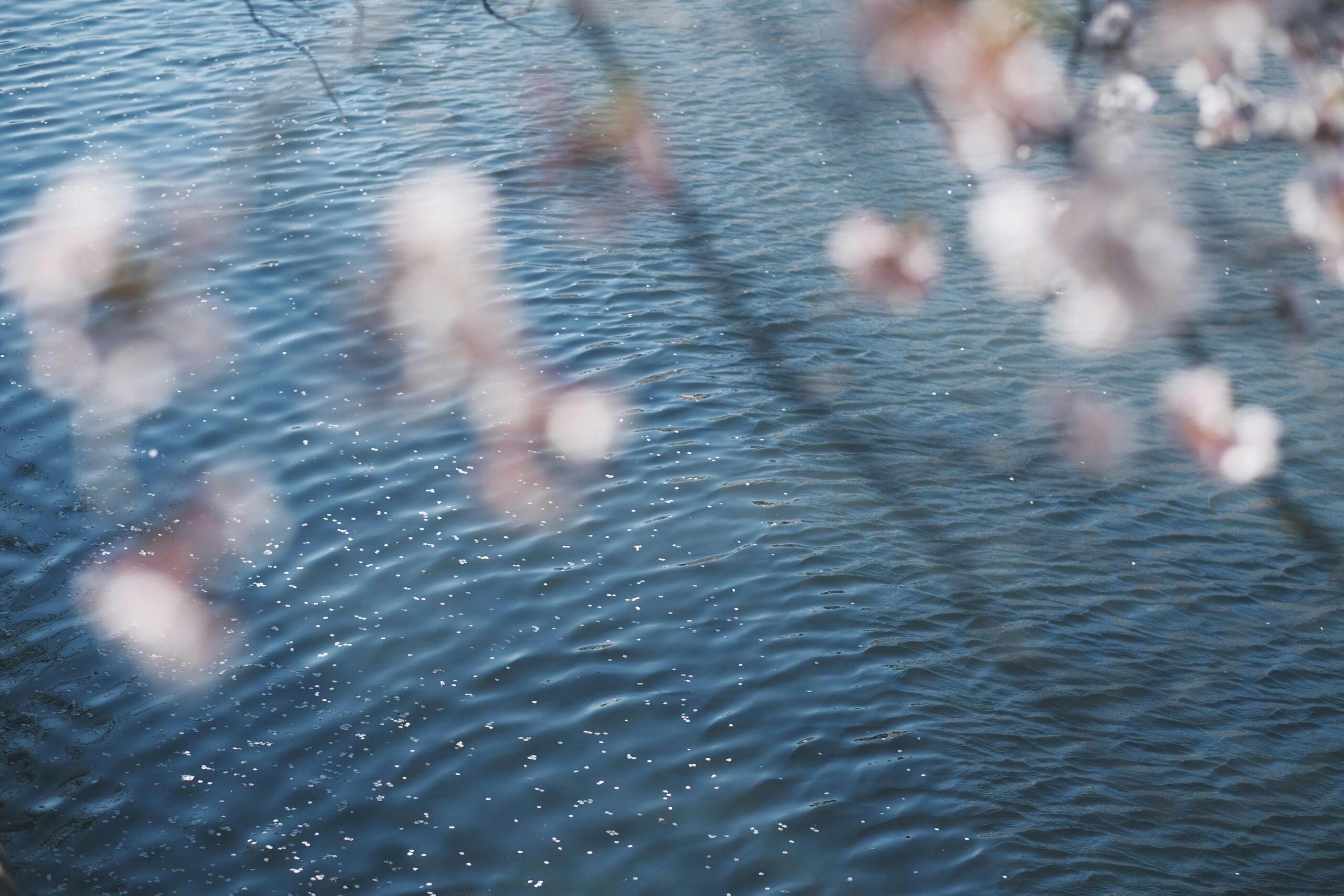
Cows, Salmon, and Mottainai
About 15 years ago my friend Dr. Kyoko Nakayama taught me the Japanese word “mottainai.” Since then, I’ve been trying to wrap my small brain around what mottainai truly means. Every time I think I understand mottainai, the concept grows, and my brain stretches.
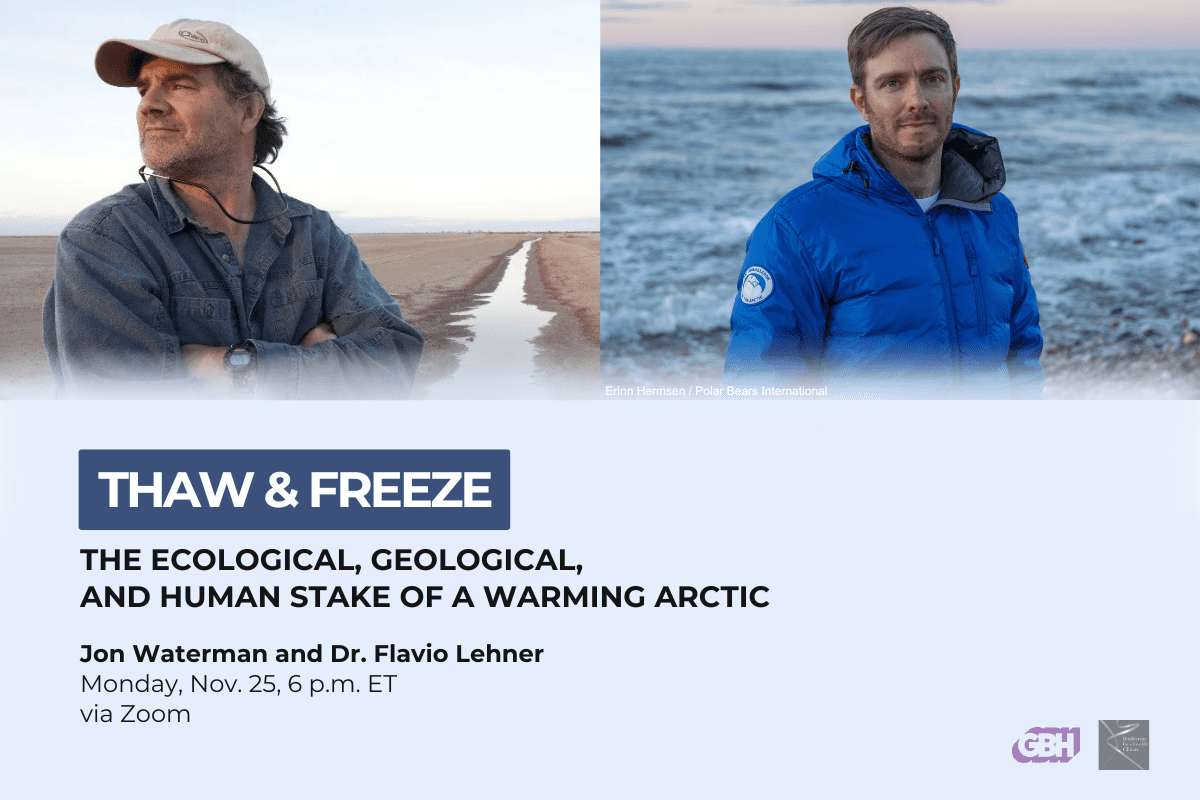
Thaw and Freeze: The ecological, geological, and human stakes of a warming Arctic
WATCH THE RECORDING A rapidly changing Arctic is reshaping everything. Polar bears navigate shrinking expanses of sea ice, thawing permafrost threatens coastal villages, destabilizes infrastructure, and exhales methane, and warming temperatures push more species northward into a greener arctic. These transformations are profound, and their impacts can extend far beyond the region’s ecologies that depend…
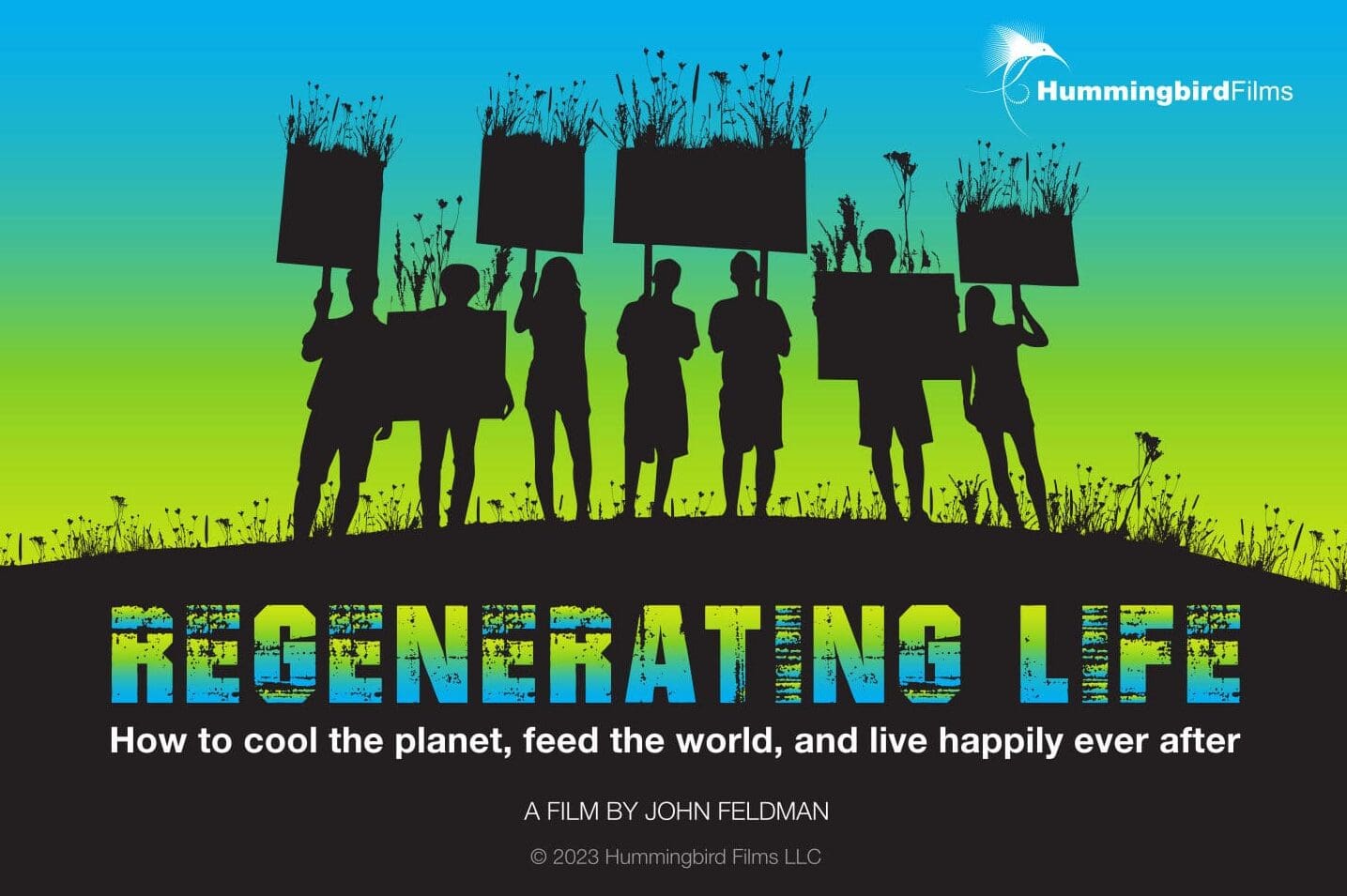
Regenerating Life: Upcoming Screenings
Regenerating Life is a groundbreaking film that reframes the climate crisis by focusing on nature’s power to heal our planet. It reveals how the biosphere egulates Earth’s climate and how its destruction has driven global warming. The film highlights regenerating ecosystems like forests, fields, and wetlands, restoring the water cycle, and embracing sustainable practices like…
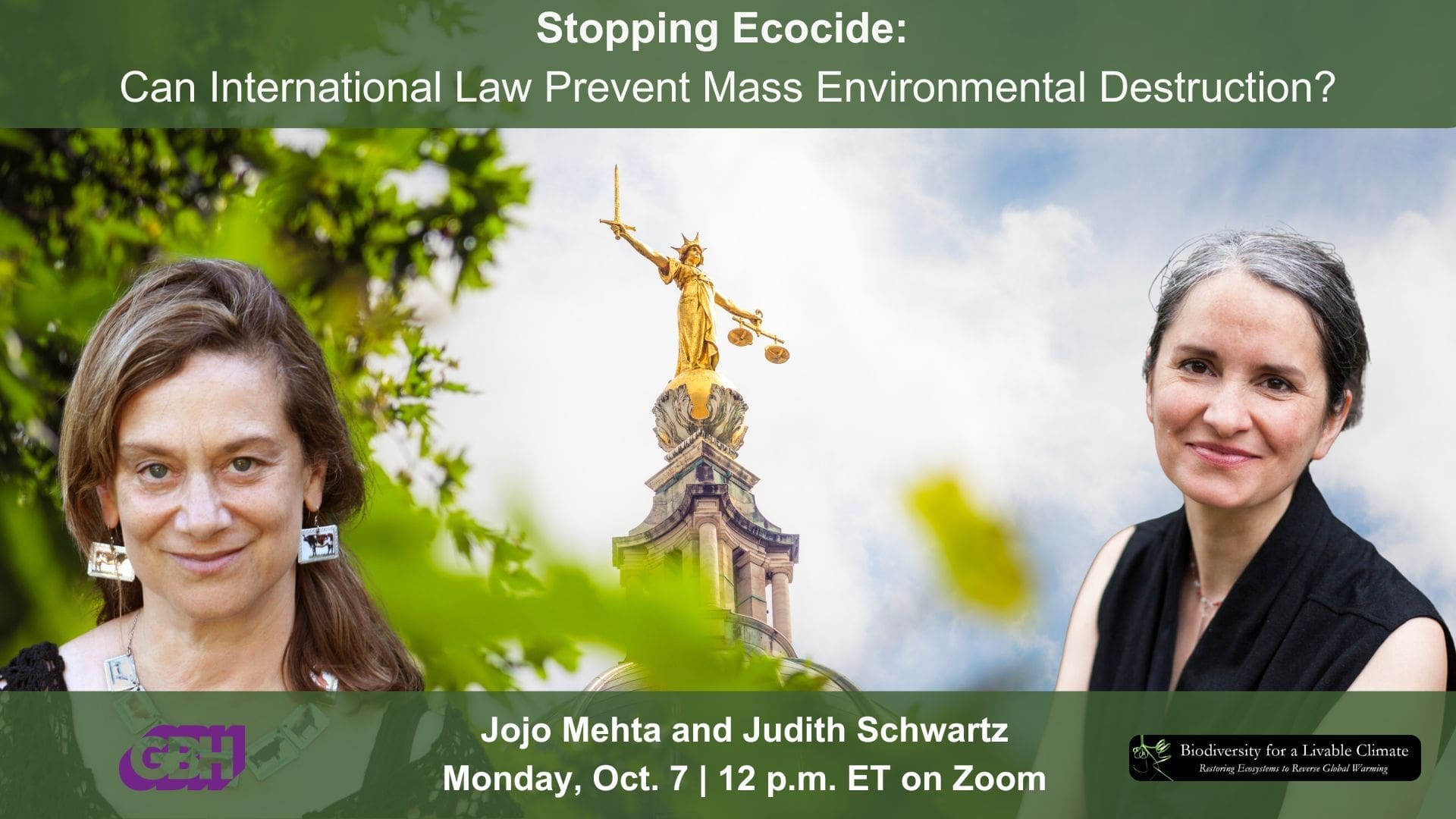
Stopping Ecocide: Can International Law Prevent Mass Environmental Destruction?
WATCH THE RECORDING Diverse ecosystems represent the greatest climate action technology at our disposal. But what recourse do we have when nature itself is under attack from the world’s biggest political and economic powers? The movement to codify ecocide, that is, the intentional (or negligent) mass destruction of an ecosystem, as an international crime is…
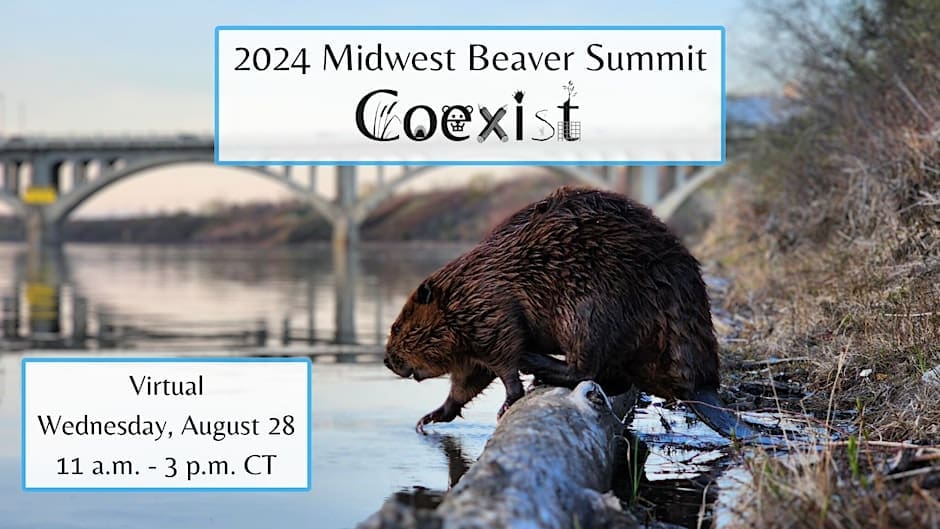
2024 Midwest Beaver Summit
Bio4Climate is excited to co-host the 2024 Midwest Beaver Summit alongside many outstanding environmental nonprofits, land trusts, restoration practitioners, and other organizations dedicated to conservation, implementing coexistence strategies, and cultivating awareness of the importance of beavers as keystone species in our ecosystems. WATCH THE RECORDING Full Agenda: This summit is organized by Midwest Beaver Advocacy…
Restoring Nature Is Our Only Climate Solution
Richard Heinberg, Resilience
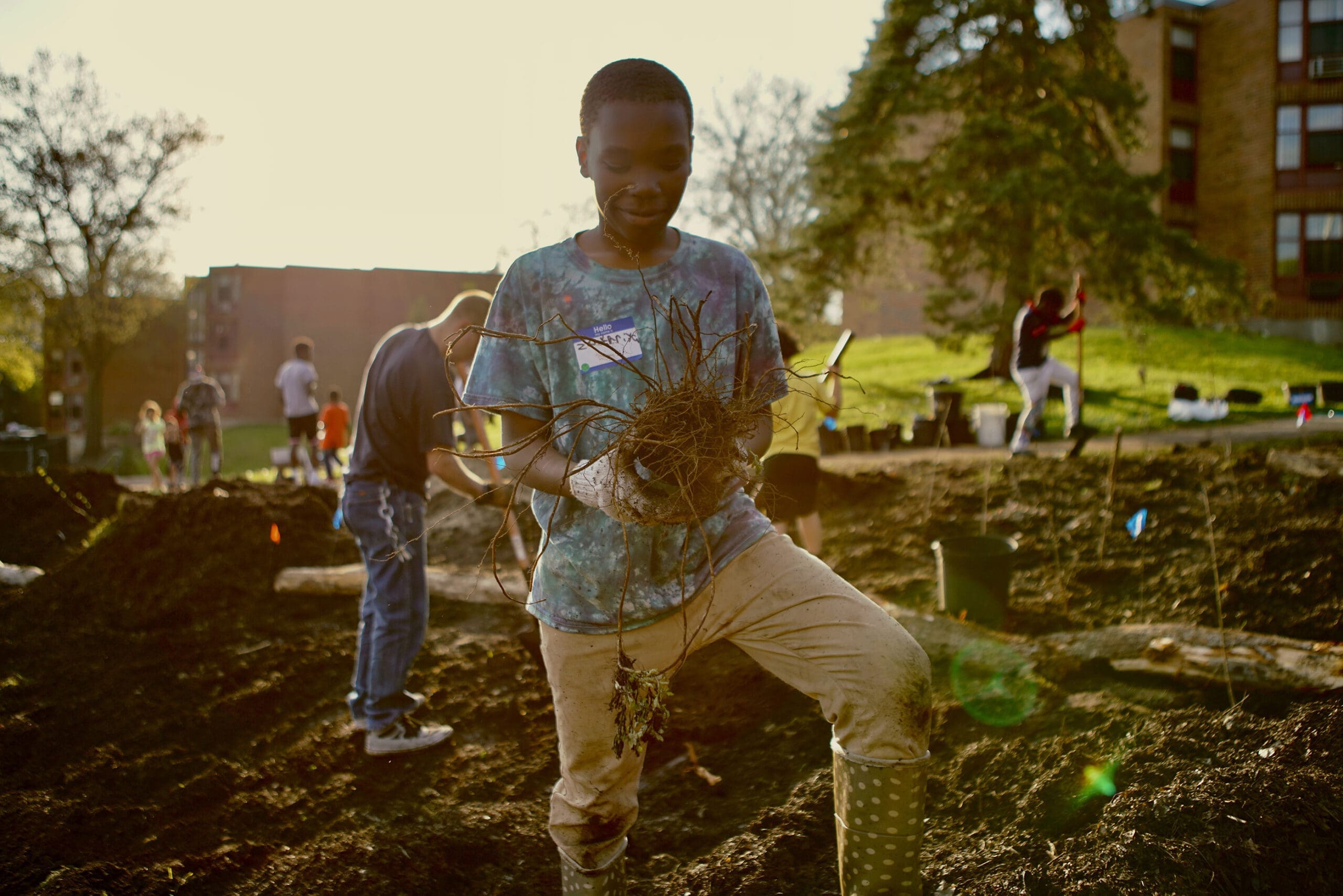
From Parking Lot & Lawn to Miyawaki Forests: Transforming Worcester, MA
A transformation is underway in Worcester, MA. In this mid-sized city in Central Massachusetts long known for its industrial activity, city leadership has undertaken ambitious initiatives to address some of their climate resilience goals using the Miyawaki method. Together, Bio4Climate, BSC Group, and the City of Worcester planned and created two Miyawaki Forests in the…
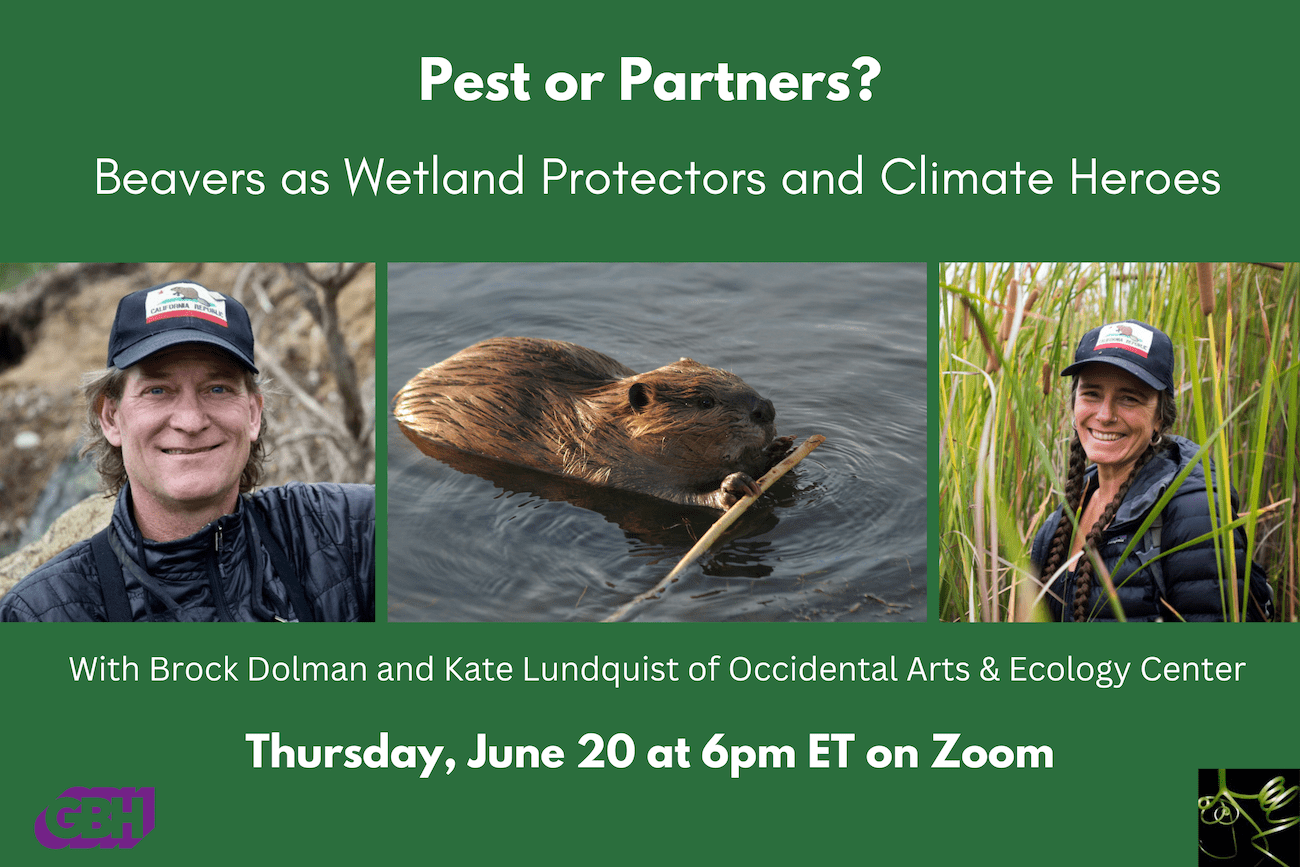
Beavers as Wetland Protectors and Climate Heroes – Thursday June 20
How can one furry critter can help us restore wetlands, protect biodiversity and mitigate both floods and fires. Brock Dolman and Kate Lundquist will shared their insights on beavers’ beneficial role as ecosystem engineers, and lessons from their successful support of a recent state-led Beaver Restoration Program in California. Watch the recorded event. As WATER…
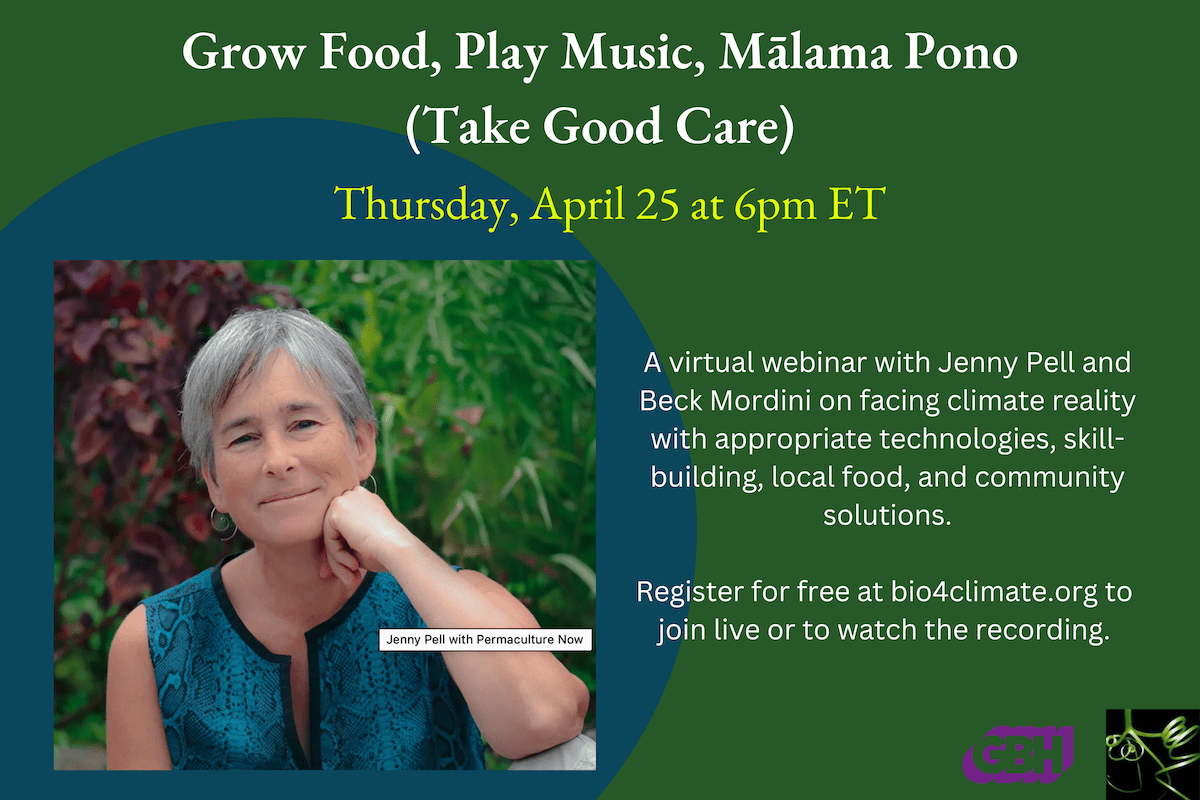
Grow Food, Play Music, Mālama Pono (Take Good Care) – Thursday, April 25, 6pm ET
On Thursday, April 25 at 6pm ET, Beck Mordini and Jenny Pell held a lively conversation about facing our pretty scary future with integrity, hope, plenty of know-how, and a great sense of humor. We dove into climate reality, appropriate technologies, skill-building, local food, and neighborhood solutions that will inspire you to jump into your own…
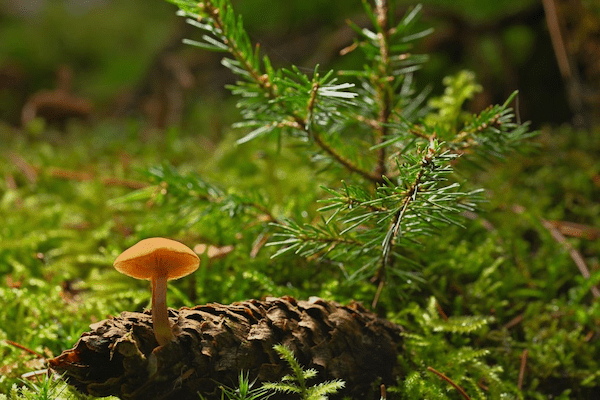
Biodiversity Deep Dive Course: Transformation to a Holistic Perspective – September 20, 2023
Biodiversity Deep Dive Course: Transformation to a Holistic Perspective – September 20, 2023 Are you ready to transform your understanding of how life on the planet works and how we can play a role? Join us as we follow the transformation of two leading writers and thinkers to a deeper understanding of natural systems, our…
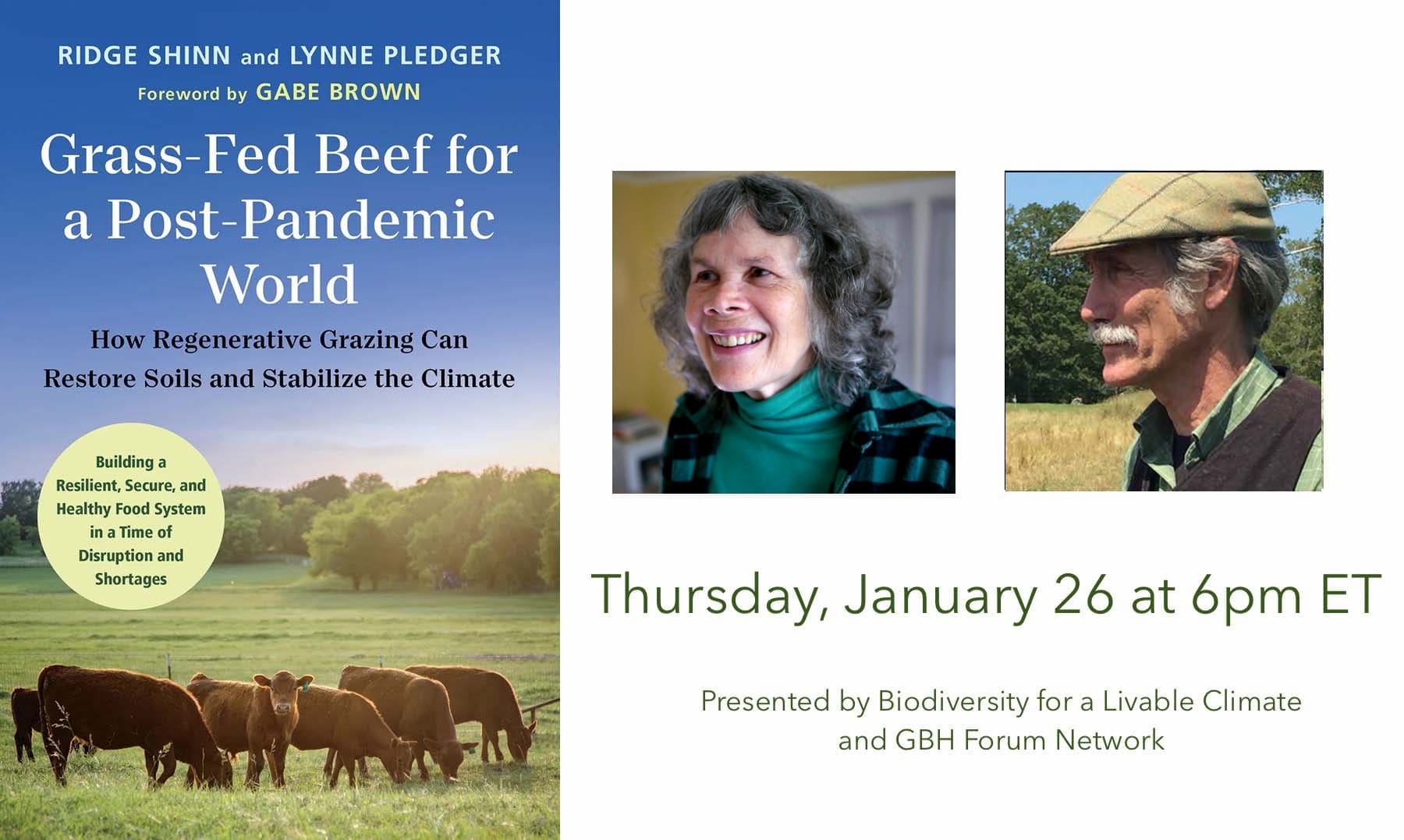
Developing Food Resilience for Hard Times Ahead
In January, Ridge Shinn and Lynne Pledger joined us to discuss their new book, Grass-Fed Beef for a Post-Pandemic World. While the last few tumultuous years have heightened uncertainties about our food supplies, there’s some good news coming out of the regenerative agriculture movement. Regenerative practices restore degraded land, increase soil productivity, sequester carbon and…
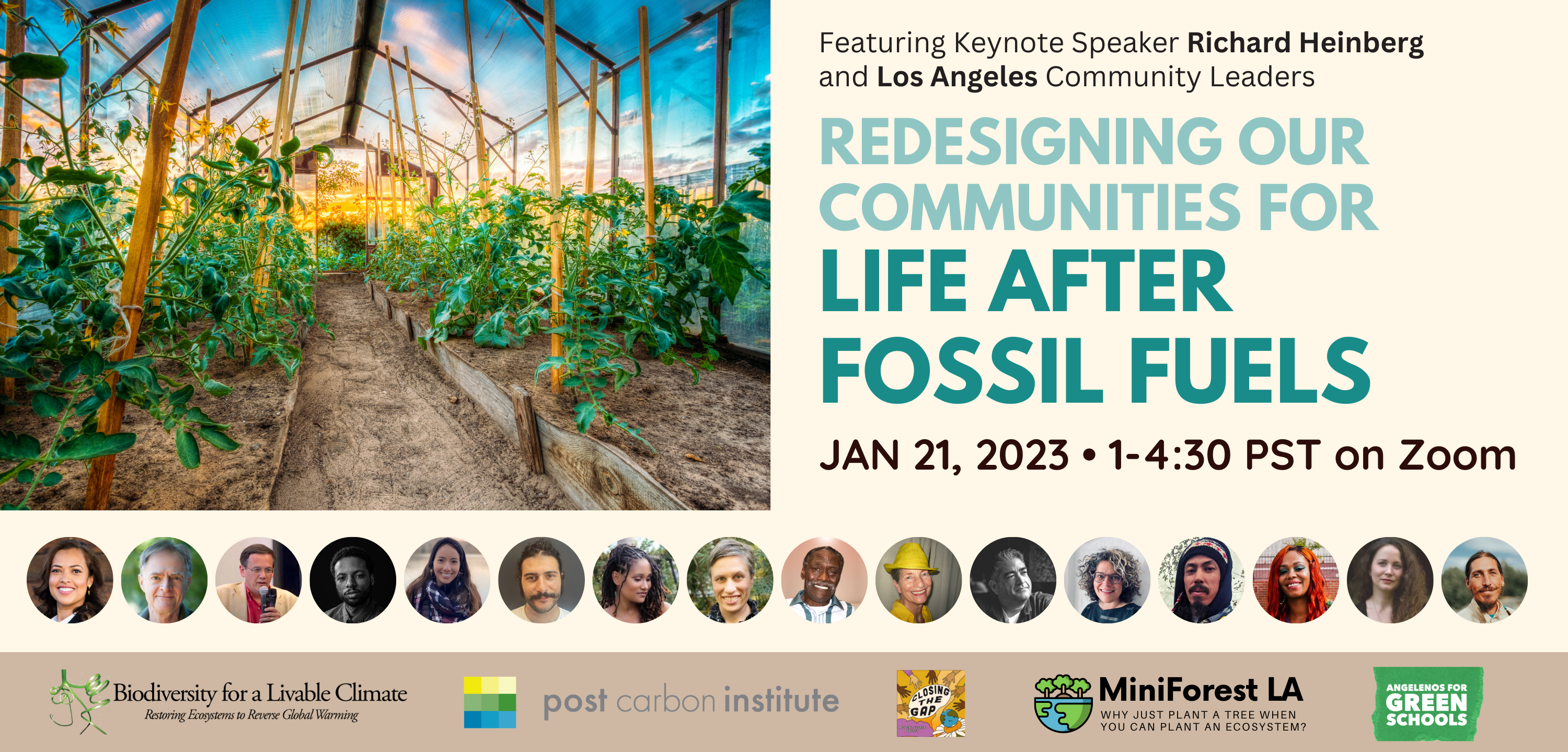
Redesigning Our Communities – Los Angeles
A series of virtual and in-person community eventsin 6 locations in the U.S. and Canada Our latest installment of Redesigning Our Communities for Life After Fossil Fuels took place on Saturday, January 21 with national and local speakers from Los Angeles. Check out the conference program and stay tuned for the recording and for our next event in Cleveland…
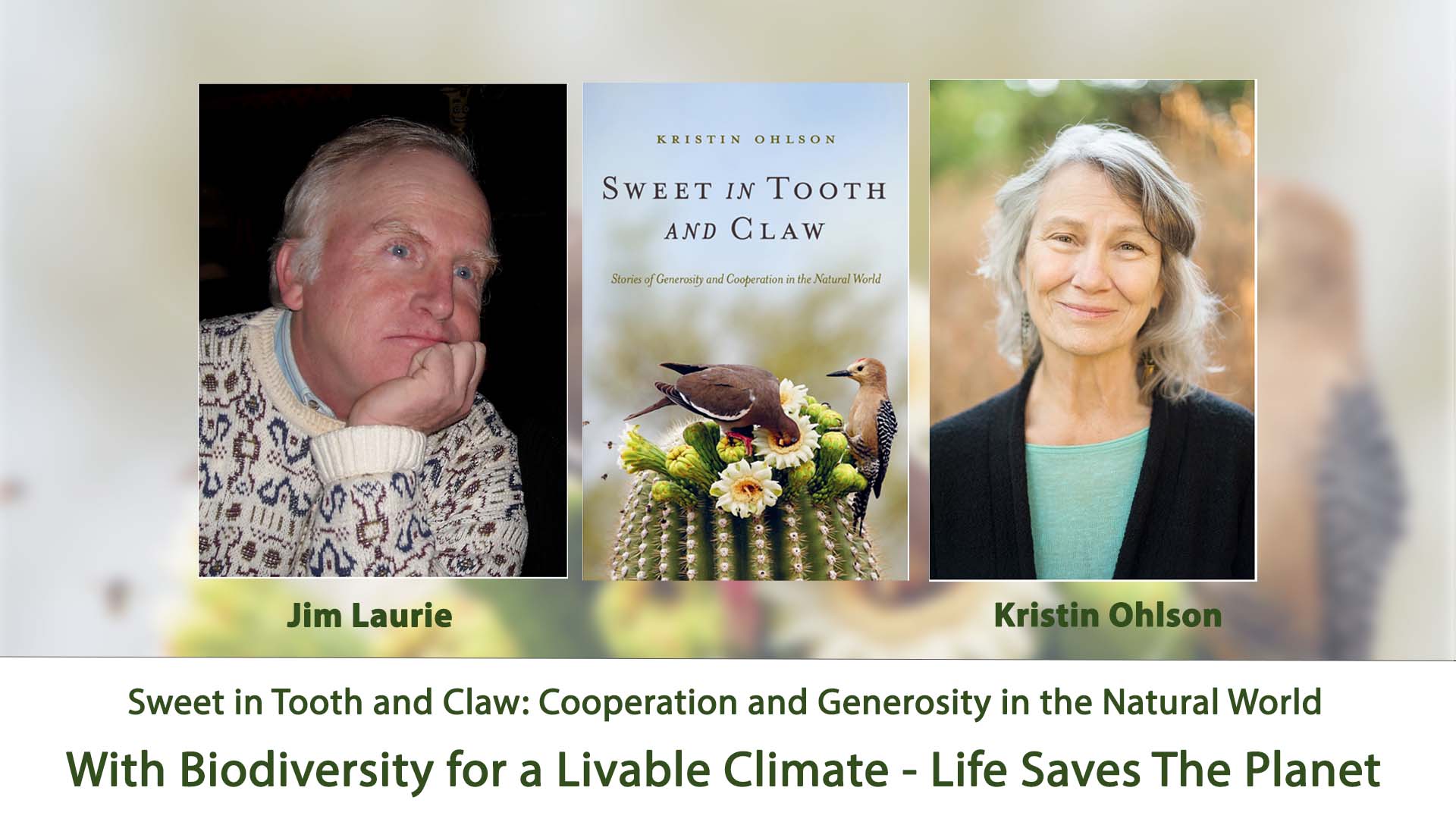
Sweet in Tooth and Claw
In December, author Kristin Ohlson and restoration ecologist Jim Laurie shared their wisdom in Sweet In Tooth And Claw: Cooperation And Generosity In The Natural World. They discussed Ohlson’s latest book, in which she explores the way symbiotic relationships between individuals and species fundamentally shapes our planet. In contrast to narratives of competition and dominance,…
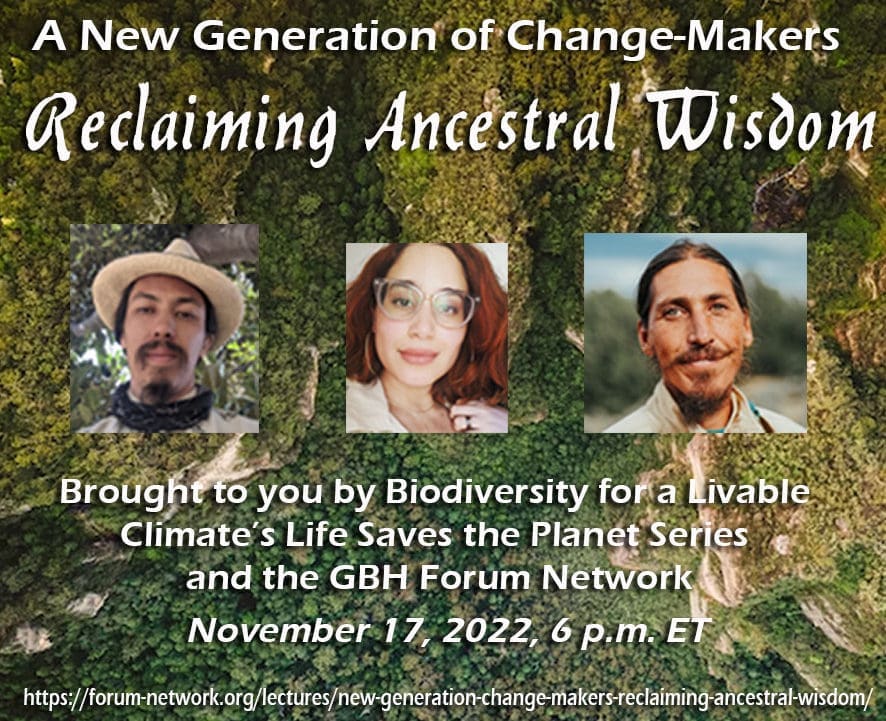
A New Generation of Change-Makers Reclaiming Ancestral Wisdom
We were honored to host Jess Alvarez-Parfrey, Nathan Lou, and William Wildcat (Coakí) for an exploration of ancestral connections, and transformative opportunities to nurture a truly regenerative, just, joyful, and climate resilient future. Bringing together diverse cultural backgrounds, skills, and experiences, our panel of practitioners shared their stories, and perspectives the theme of “regeneration” as…
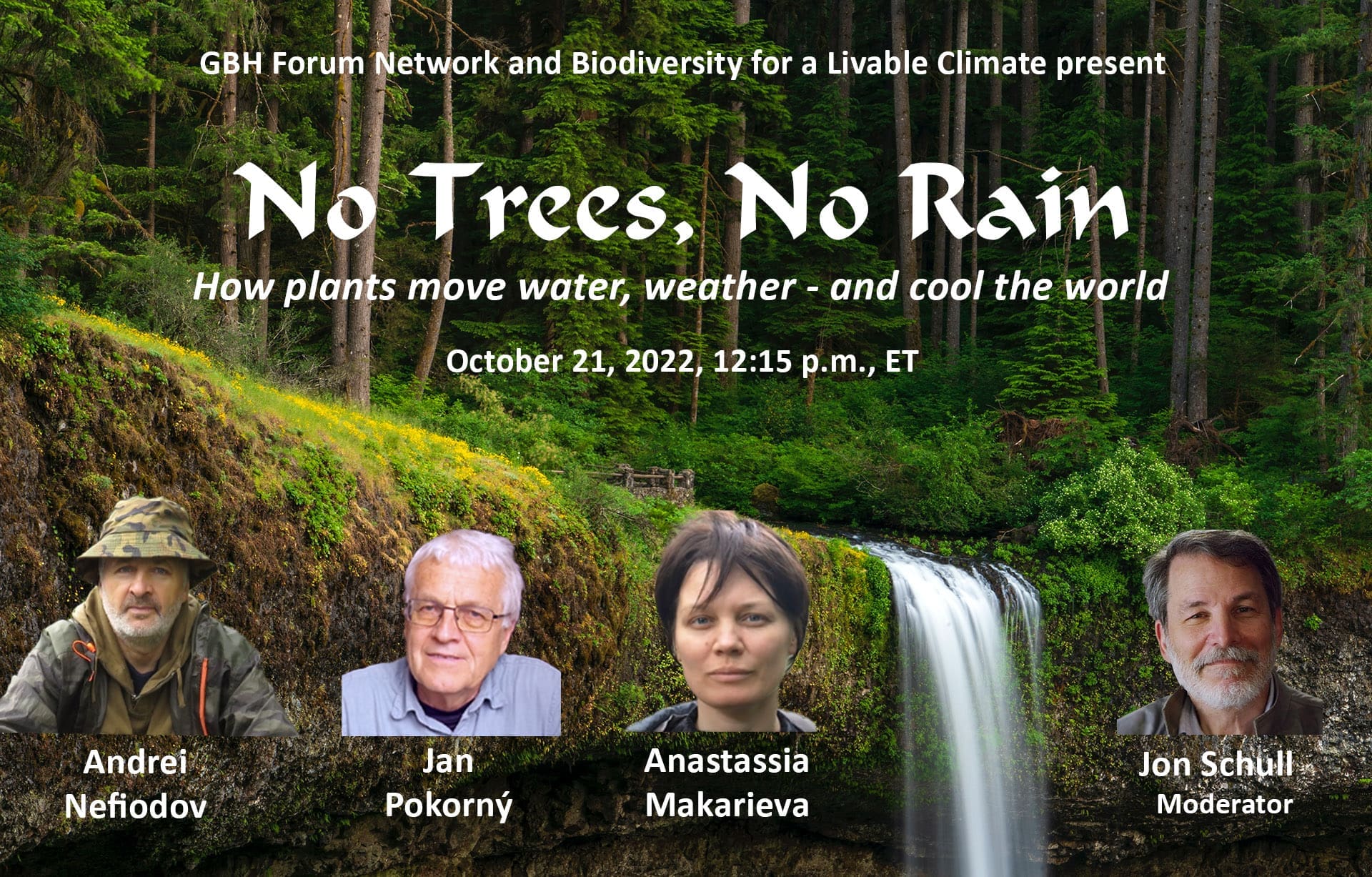
No Trees, No Rain: How Plants Move Water, Weather – And Cool the World
Droughts and flash floods are becoming a new normal in our warming world. What changed? Our landscapes are losing water as people alter the environment, cut trees, drain wetlands, and use chemicals that destroy the soil. And we’re feeling the heat. On October 21, we hosted Anastassia Makarieva, Jan Pokorny, Andrei Nefiodov, and Jon Schull…
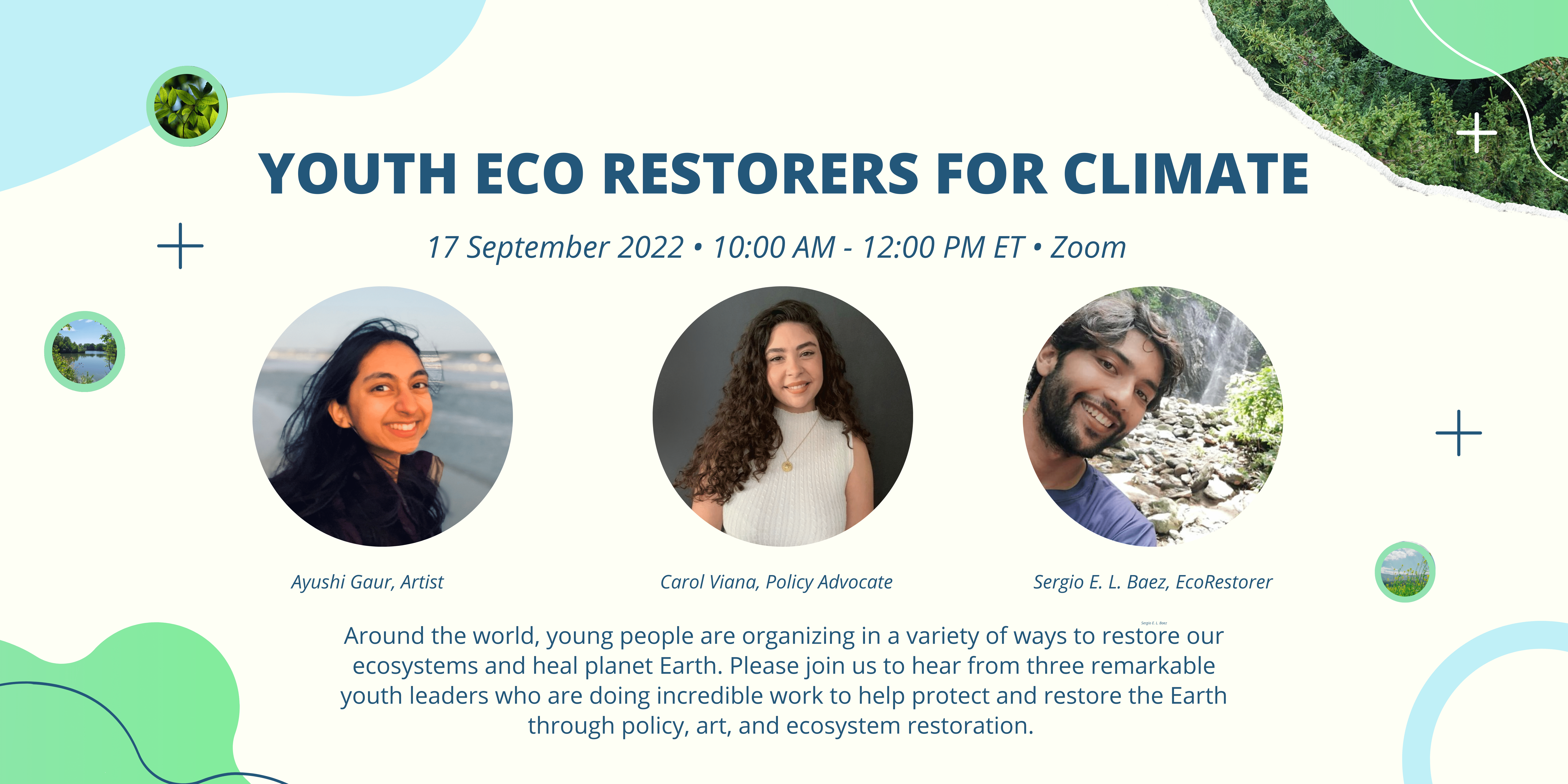
Youth EcoRestorers for Climate
Youth leaders across the globe are advocating for people and the planet in various ways including on-the-ground ecosystem restoration, artivism, and promotion of regenerative agriculture. On September 17, Biodiversity for a Livable Climate hosted three youth leaders from Colombia, the United States, and Brazil to amplify their stories of regeneration and environmental advocacy. Check out…
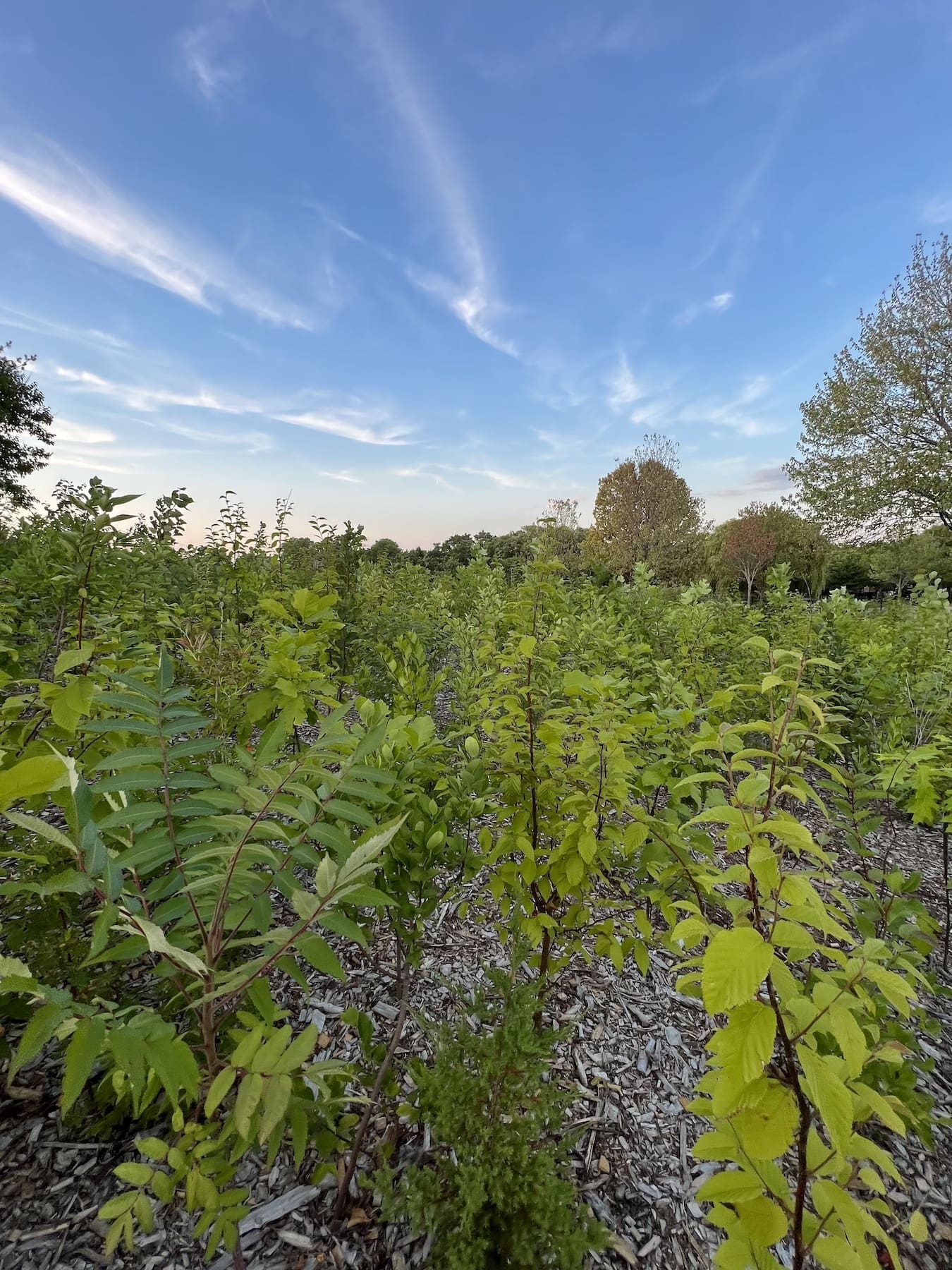
Biodiversity 7: Rewilding Half the Earth to Create a Future We Want
Biodiversity 7: Rewilding Half the Earth to Create a Future We Want Fall 2022, Wednesdays, October 12 – December 28 12 weekly classes with our staff scientist, Jim Laurie. He will hold two sessions every Wednesday, from 12 – 2 pm ET and 7 – 9 pm ET to accommodate students’ different schedules. The Excitement…

Compendium Vol. 11, Grasslands
How do grassland ecosystems affect climate and biodiversity? In this issue we examine the science, the restoration and the culture around grasslands. Dive into the eleventh edition of our Compendium of Scientific and Practical Findings Supporting Eco-Restoration to Address Global Warming. We welcome your interest and comments – please contact us at staff@bio4climate.org.
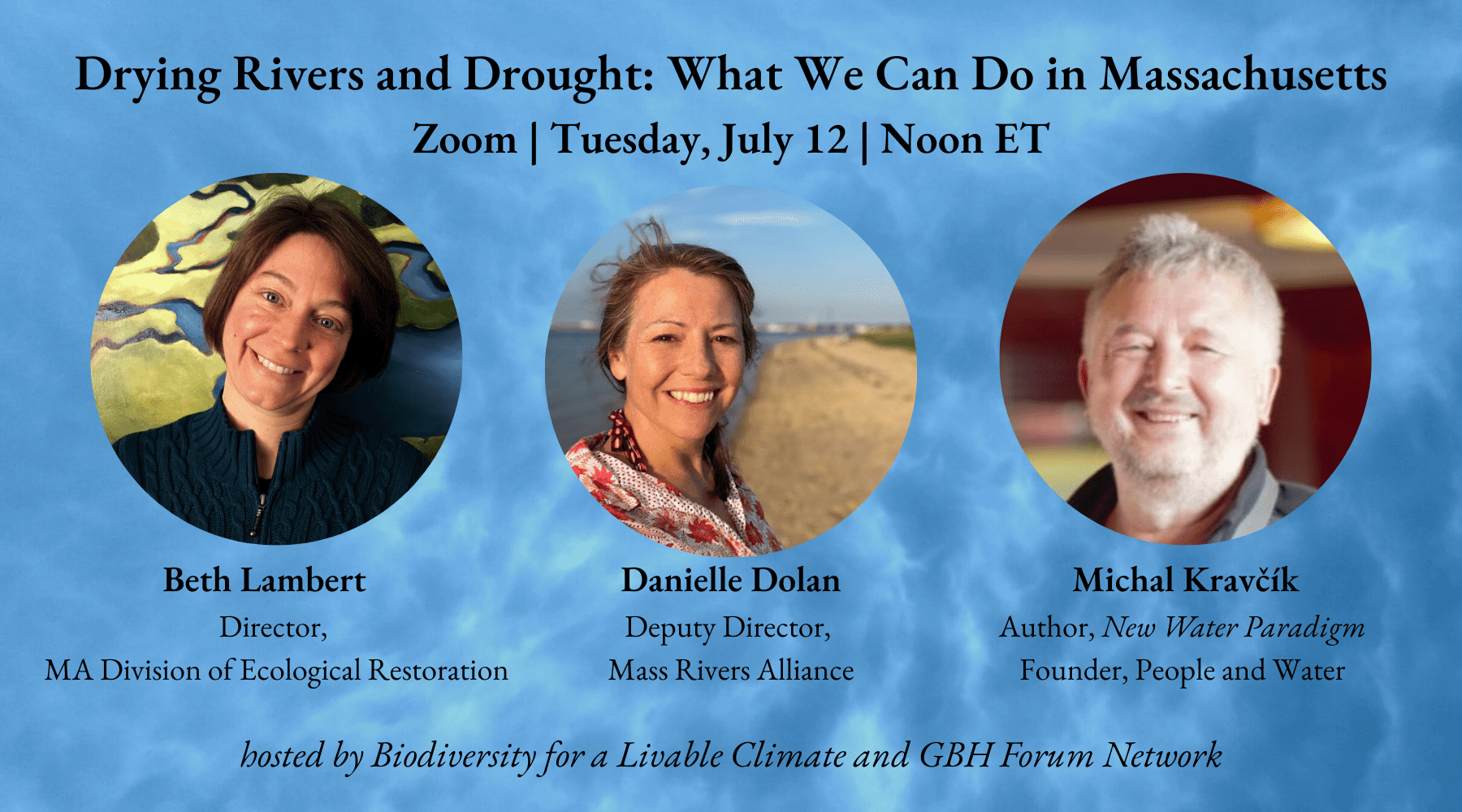
Drying Rivers & Drought: What We Can Do In Massachusetts
This July as Massachusetts, like many other parts of the world, reckoned with serious drought, we held a lecture to explore how we can address drought conditions on a local, regional, and global scale. Check out the recording and related resources here! Drought warnings in Massachusetts are a stark reminder that we are part of…
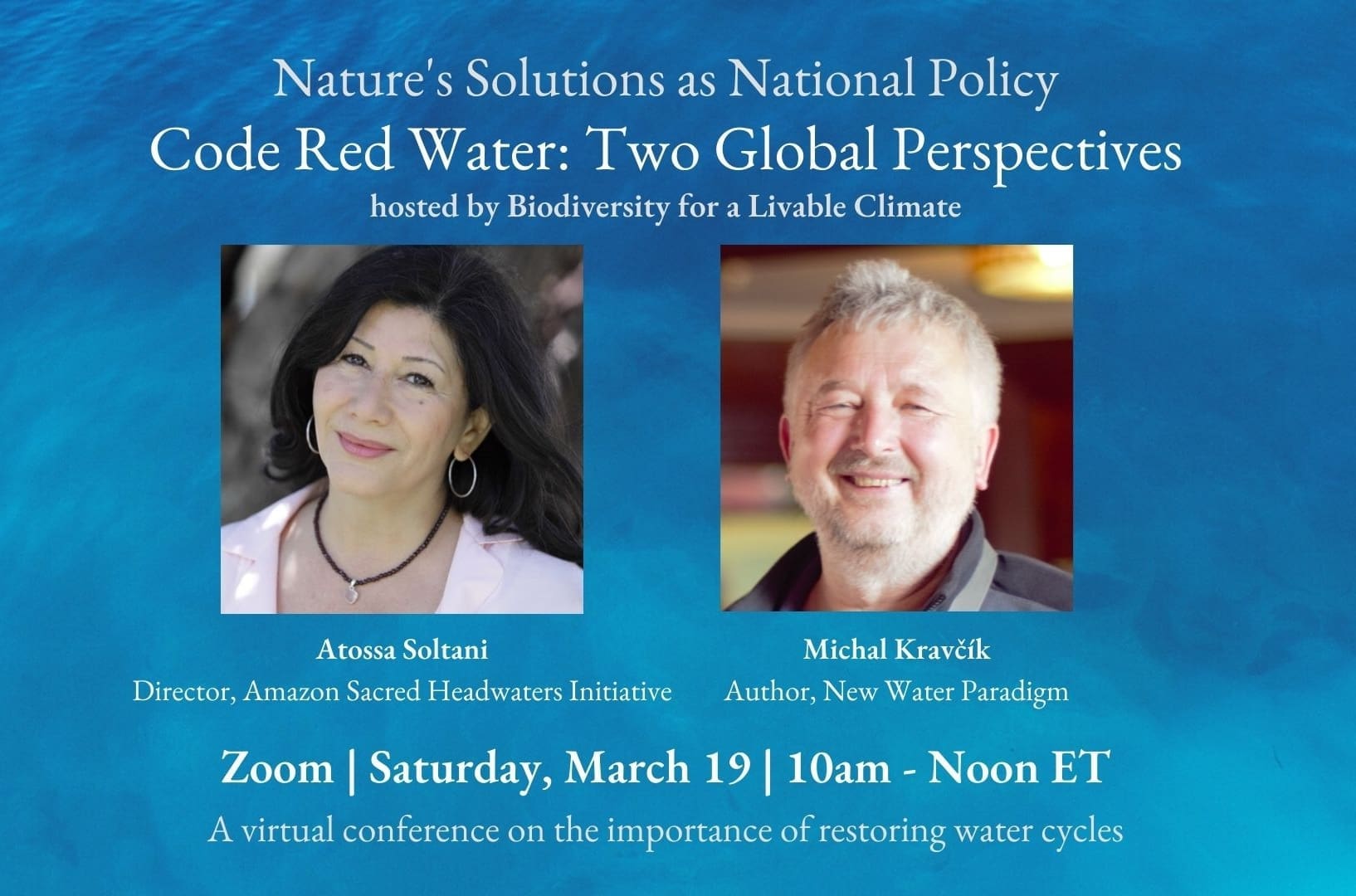
National Solutions as National Policy: Code Red Water
This March, Biodiversity for a Livable Climate continues its series of mini-conferences exploring how we can leverage nature’s solutions to shape policy on climate action and resilience. Our fourth installment features global perspectives on the challenges and opportunities to restoring water cycles. View the recording below, and access the chat and related resources, including presentation slides,…
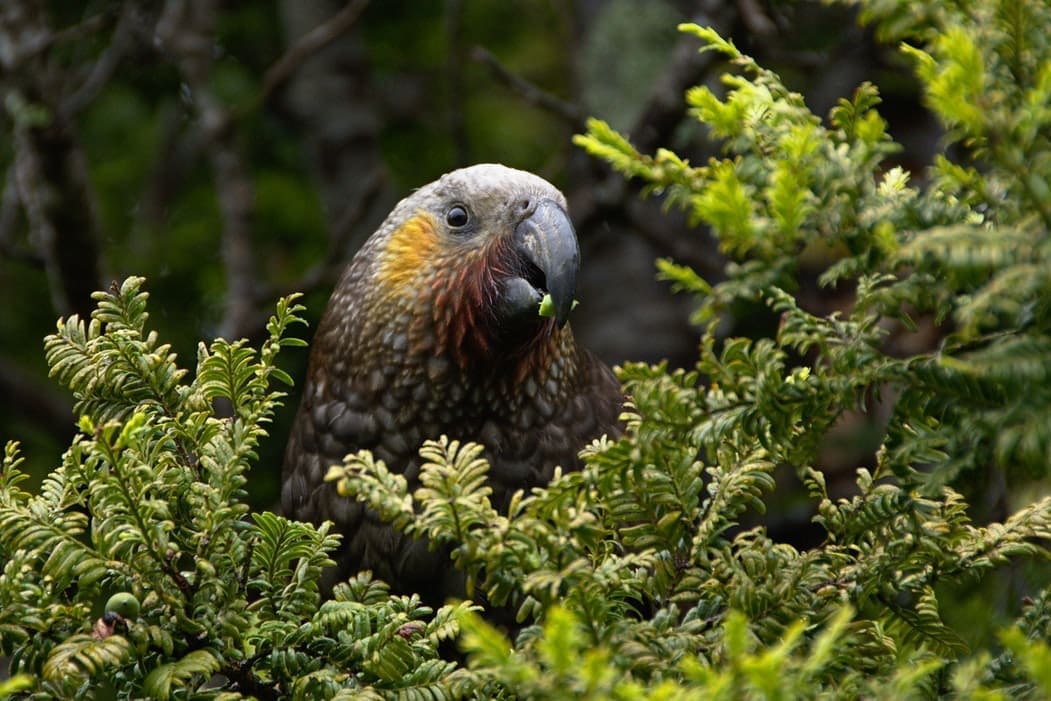
Nature’s Solutions as National Policy: How Animals Shape Ecosystems
This September, Biodiversity for a Livable Climate continued its series of mini-conferences exploring how we can leverage nature’s solutions to shape policy on climate action and resilience. Our second installment focuses on animals and their crucial role in shaping ecosystems and supporting healthy functioning carbon, water, nutrient, and energy cycles. Watch the video recording here: You…
